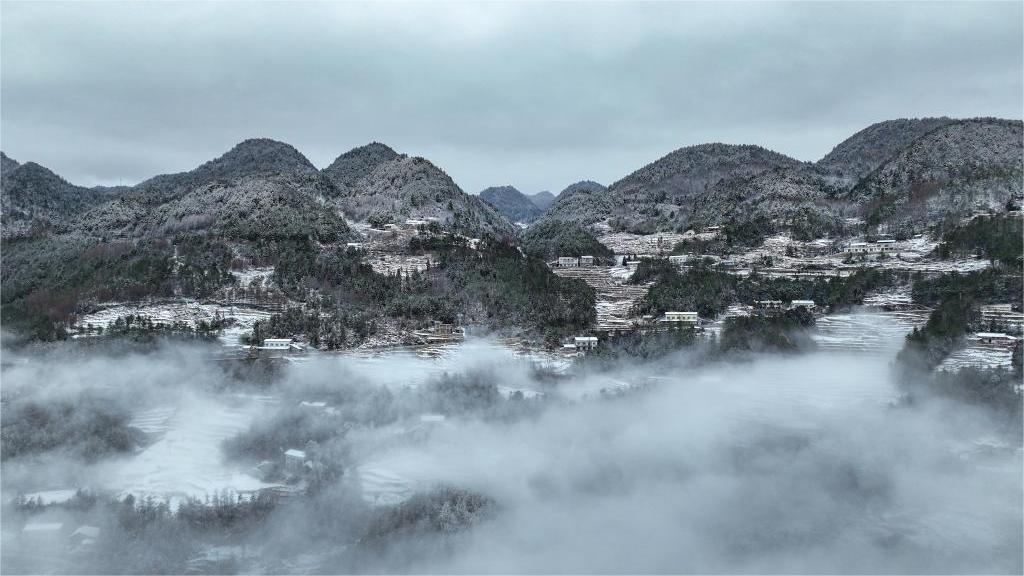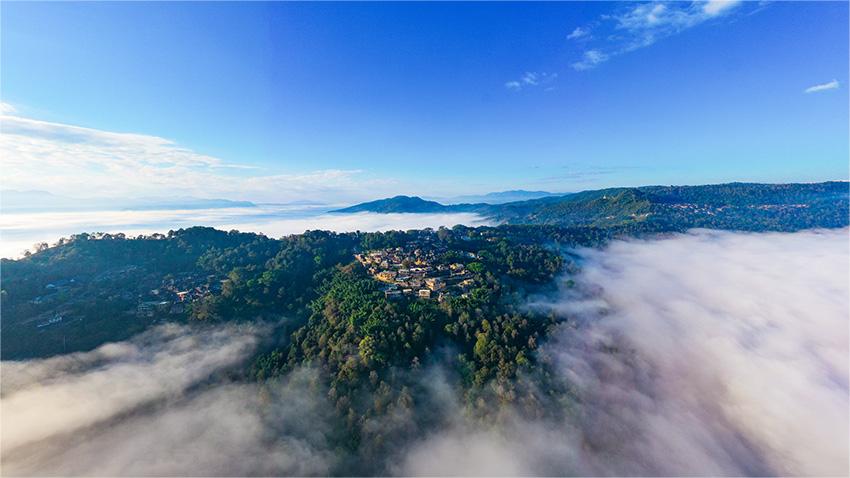Listening for leaks on railway system
TAIYUAN, Feb. 13 (Xinhua) -- Du Biao works only in the wee hours of the morning, as he carries out his unique job -- listening for leaks in the water supply system that serves China's passenger trains.
Amidst the chilling midnight winds, Du and his colleagues gather at Taiyuan Station in north China's Shanxi Province, armed with specialist tool and a shared commitment to their task. They work through the early hours because there is less ambient noise to interfere with their delicate operations.
Situated in the provincial capital of Taiyuan, the station is a bustling hub, particularly during the 40-day Spring Festival travel rush, which commenced on Jan. 26 this year. Approximately 130 passenger trains are handled at this station every day during the period, of which about 40 need to replenish their water supplies here.
As a member of the Taiyuan power supply section within the Taiyuan bureau of China State Railway Group Co., Ltd., Du takes charge of maintaining and assessing the water supply equipment at Taiyuan Station.
His primary responsibility is listening for leaks and faults in the station's underground water-supply pipelines. He utilizes specialized equipment to listen for sounds in the ground through which the pipes run, a job that requires relative quiet.
The work is essential for the smooth running of passenger services, ensuring sufficient supply of water for drinking and flushing toilets on trains. It is also used in the cooling systems on some of the older trains, while extra supplies are provisioned in case of accidents and fires. Without Du and his colleagues, the passenger services could not run.
Du has worked in the water-supply industry for almost three decades, and was first introduced to the technology for listening to leaks in 2018. He is now a seasoned professional, capable of interpreting a range of intricate subterranean sounds to locate a leakage point.
The key equipment consists of a radio headset, a sonic instrument slung from the neck and a hand-held pickup device. This last device is held to the ground, picking up the sounds of the water system in operation. Even the faintest sounds, such as the friction of stones on the ground, can be amplified a hundredfold.
Du starts his work at 1:00 a.m. A detailed map of underground pipelines unfolds in his mind as he walks back and forth, listening more than 1,500 times, covering around 3,000 meters.
For Du, each listening session demands full concentration, with the sounds in his headset becoming his entire world. "To excel in this, one must maintain keen ears and sensitivity to water sounds," Du said. "Listening to distinguish locations also requires absolute patience, ensuring that no leakage point goes unnoticed."
He notes that inspections can be complicated by factors like the depth of pipeline burial, geological conditions, water-supply pressure and ambient noise.
"If leakage points aren't heard promptly, it not only affects passengers' water supply but may also cause the foundations of the railway to sink over a long period of time, impacting the overall safety of driving."
Acknowledging water as the source of life, Du said, "Though we may not be on the frontline, we serve frontline equipment, safeguarding the 'source of life' for passenger trains."
Photos
Related Stories
- China to regulate railway passenger safety inspection
- New Chengdu-Kunming Railway brings happiness, prosperity to areas along the route after one year of operation
- China-Laos Railway witnesses Spring Festival travel rush
- Two major railway ports in Xinjiang handle over 70,000 China-Europe freight trains
- Tunnel boring machine Dinghai unveiled in Changsha, C China
Copyright © 2024 People's Daily Online. All Rights Reserved.









